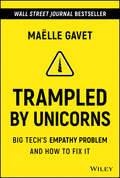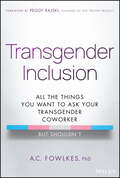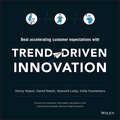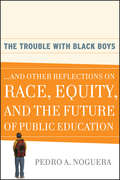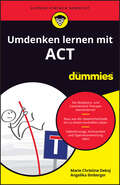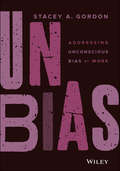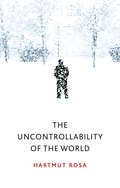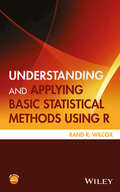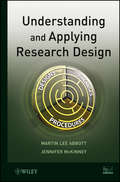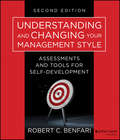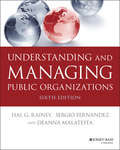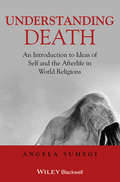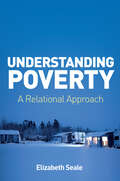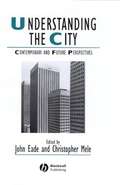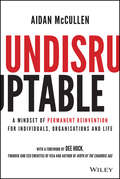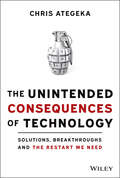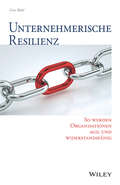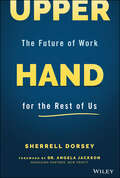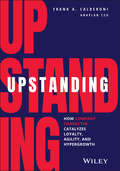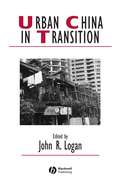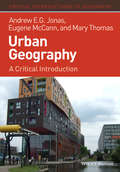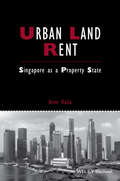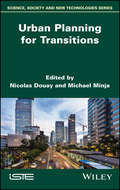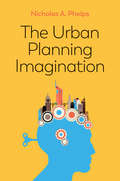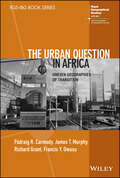- Table View
- List View
Trampled by Unicorns: Big Tech's Empathy Problem and How to Fix It
by Maelle GavetA Wall Street Journal BestsellerAn insider’s revealing and in-depth examination of Big Tech’s failure to keep its foundational promises and the steps the industry can take to course-correct in order to make a positive impact on the world. Trampled by Unicorns: Big Tech’s Empathy Problem and How to Fix It explores how technology has progressed humanity’s most noble pursuits, while also grappling with the origins of the industry’s destructive empathy deficit and the practical measures Big Tech can take to self-regulate and make it right again. Author Maëlle Gavet examines the tendency for many of Big Tech’s stars to stray from their user-first ideals and make products that actually profoundly damage their customers and ultimately society. Offering an account of the world of tech startups in the United States and Europe—from Amazon, Google, and Facebook to Twitter, Airbnb, and Uber (to name a few)—Trampled by Unicorns argues that the causes and consequences of Big Tech’s failures originate from four main sources: the Valley’s cultural insularity, the hyper-growth business model, the sector’s stunning lack of diversity, and a dangerous self-sustaining ecosystem. However, the book is not just an account of how an industry came off the rails, but also a passionate call to action on how to get it back on track. Gavet, a leading technology executive and former CEO of Ozon, an executive vice president at Priceline Group, and chief operating officer of Compass, formulates a clear call to action for industry leaders, board members, employees, and consumers/users to drive the change necessary to create better, more sustainable businesses—and the steps Western governments are likely to take should tech leaders fail to do so. Steps that include reformed tax codes, reclassification of platforms as information companies, new labor laws, and algorithmic transparency and oversight. Trampled by Unicorns’ exploration of the promise and dangers of technology is perfect for anyone with an interest in entrepreneurship, tech, and global commerce, and a hope of technology’s all-empowering prospect. An illuminating book full of insights, Trampled by Unicorns describes a realistic path forward, even as it uncovers and explains the errors of the past. As Gavet puts it, “we don’t need less tech, we need more empathetic tech.” And how that crucial distinction can be achieved by the tech companies themselves, driving change as governments actively pave the road ahead.
Transgender Inclusion: All the Things You Want to Ask Your Transgender Coworker but Shouldn't
by A. C. FowlkesDiscover the realities for transgender people in the workplace and beyond as they move through any of the three recognized kinds of transition—and how to be an ally. In Transgender Inclusion: All The Things You Want To Ask Your Transgender Coworker But Shouldn’t, clinical psychologist and trans inclusion specialist Dr. A.C. Fowlkes delivers an essential and remarkably honest discussion of the realities of the workplace for transgender people. In the book, you’ll explore the experiences that trans people have in the workplace as they move through none, one, or more of the three recognized kinds of transition—medical, social, and legal. You’ll learn answers to your questions about your transgender colleagues, so you can be respectful of your coworker’s feelings and work together comfortably. You’ll also find: Discussions of how and why transgender people often feel excluded from the workplace and by their colleagues Explorations of the unfortunately common reality of harassment and maltreatment of transgender workers How and why information about transgender experiences in the workplace is helpful to everyone Approximately 1.3 million adults in the United States identify as transgender. If you don’t already have a transgender friend, neighbor, or co-worker, you might very well have one in the future. A practical, compassionate, and evidence-based discussion of the transgender experience, Transgender Inclusion is a must-read guide for managers, executives, professionals, and allies who want to learn more and do more about trans issues in the workplace.
Trend-Driven Innovation
by Henry Mason Alexander Osterwalder David Mattin Delia Dumitrescu Maxwell LuthyTrend-Driven InnovationBeat accelerating customer expectations.Every business leader, entrepreneur, innovator, and marketer wants to know where customers are headed. The problem? The received wisdom on how to find out is wrong.In this startling new book, the team at TrendWatching share a powerful, counter-intuitive truth: to discover what people want next, stop looking at customers and start looking at businesses. That means learning how to draw powerful insights from the way leading brands and disruptive startups--from Apple to Uber, Chipotle to Patagonia--redefine customer expectations.Sharing the secrets that have led thousands of the world's most successful brands and agencies to rely on TrendWatching for over a decade, Trend-Driven Innovation is the book that will reconfigure your view of the business world forever. You'll learn: How to spot emerging trends using three crucial building blocks, and how to recognize the expectation gaps that herald opportunity. Why most professionals focus on precisely the wrong trends and innovations, and how to avoid this. How to turn trends and insights into innovations that customers will love. Amid the endless change that defines today's business environment, opportunity is everywhere. Highly practical, and featuring real-world examples from around the world, Trend-Driven Innovation is the actionable, battle-tested manual that will enable you harness those opportunities time after time. Setting you up to build an organization that matters, products customers lust after, and campaigns people can't stop talking about.
The Trouble With Black Boys
by Pedro A. NogueraFor many years to come, race will continue to be a source of controversy and conflict in American society. For many of us it will continue to shape where we live, pray, go to school, and socialize. We cannot simply wish away the existence of race or racism, but we can take steps to lessen the ways in which the categories trap and confine us. Educators, who should be committed to helping young people realize their intellectual potential as they make their way toward adulthood, have a responsibility to help them find ways to expand identities related to race so that they can experience the fullest possibility of all that they may become. In this brutally honest--yet ultimately hopeful-- book Pedro Noguera examines the many facets of race in schools and society and reveals what it will take to improve outcomes for all students. From achievement gaps to immigration, Noguera offers a rich and compelling picture of a complex issue that affects all of us.
Umdenken lernen mit ACT für Dummies (Für Dummies)
by Marie Christine Dekoj Angelika IlmbergerRaus aus der Gewohnheitsfalle hin zu einem sinnhaften Leben Möchten Sie Ihrem Leben mehr Sinn geben und Ihren Werten entsprechend leben? Die Akzeptanz- und Commitment-Therapie kann Ihnen dabei helfen. Üben Sie sich in Akzeptanz, also Dinge und Gefühle anzunehmen, wie sie sind. Lernen Sie, der Gewohnheitsfalle zu entfliehen und anders mit Ihren Gedanken und Gefühlen umzugehen. Üben Sie sich in Achtsamkeit und dem Leben im Hier und Jetzt. Sorgen Sie durch Selbstmitgefühl und Selbstfürsorge dafür, dass es Ihnen gut geht. Und finden Sie heraus, welche Werte Ihnen im Leben wirklich wichtig sind und wie Sie sie mit engagiertem Handeln verfolgen können. Sie erfahren Wie Sie eine andere Perspektive auf sich selbst entwickeln Wie Sie Gewohnheiten ändern, die Ihnen nicht guttun Wie Sie mit dem ständigen Gedankenkarussel und Gefühlschaos umgehen
UNBIAS: Addressing Unconscious Bias at Work
by Stacey A. GordonLet the CEO of Rework Work help you understand diversity, equity, and inclusion concepts to actively remove bias from the workplace Dismantling unhealthy workplaces involves much more than talking about it, and more than charts, graphs, and statistics—it requires action. Although it’s increasingly common for businesses of all shapes and sizes to appreciate the importance of diversity and inclusion in the workplace, many are often unaware of bias in the cultures they’ve created. Others might know there’s a problem, but don’t know how to properly address it. UNBIAS: Addressing Unconscious Bias At Work helps you understand concepts of workplace diversity, equity, and inclusion, shows you how to identify bias, and provides you with the tools for actively removing barriers and ensuring equity throughout your organization. Written by Stacey Gordon—CEO of Rework Work, a company on a mission to reduce bias in global talent acquisition and management—this real-world handbook offers step-by-step guidance on creating workplace cultures where employees feel they belong. UNBIAS teaches you to: Identify and address bias in the workplace Understand what you can do to be more inclusive Handle potentially uncomfortable conversations Discuss race in an authentic and meaningful way Use workplace-proven tools that make concepts of diversity and equity actionable Help your employee resource groups without giving them extra work Place accountability on organizational policies that allow biased behavior UNBIAS is a must-have resource for all employers, managers, and HR professionals seeking to create and sustain healthy, inclusive, and equitable workplace environments.
The Uncontrollability of the World
by Hartmut RosaThe driving cultural force of that form of life we call ‘modern’ is the desire to make the world controllable. Yet it is only in encountering the uncontrollable that we really experience the world – only then do we feel touched, moved and alive. A world that is fully known, in which everything has been planned and mastered, would be a dead world. Our lives are played out on the border between what we can control and that which lies outside our control. But because we late-modern human beings seek to make the world controllable, we tend to encounter the world as a series of objects that we have to conquer, master or exploit. And precisely because of this, ‘life,’ the experience of feeling alive and truly encountering the world, always seems to elude us. This in turn leads to frustration, anger and even despair, which then manifest themselves in, among other things, acts of impotent political aggression. For Rosa, to encounter the world and achieve resonance with it requires us to be open to that which extends beyond our control. The outcome of this process cannot be predicted, and this is why moments of resonance are always concomitant with moments of uncontrollability. This short book – the sequel to Rosa’s path-breaking work on social acceleration and resonance – will be of great interest students and scholars in sociology and the social sciences and to anyone concerned with the nature of modern social life.
Understanding and Applying Basic Statistical Methods Using R
by Rand R. WilcoxFeatures a straightforward and concise resource for introductory statistical concepts, methods, and techniques using R Understanding and Applying Basic Statistical Methods Using R uniquely bridges the gap between advances in the statistical literature and methods routinely used by non-statisticians. Providing a conceptual basis for understanding the relative merits and applications of these methods, the book features modern insights and advances relevant to basic techniques in terms of dealing with non-normality, outliers, heteroscedasticity (unequal variances), and curvature. Featuring a guide to R, the book uses R programming to explore introductory statistical concepts and standard methods for dealing with known problems associated with classic techniques. Thoroughly class-room tested, the book includes sections that focus on either R programming or computational details to help the reader become acquainted with basic concepts and principles essential in terms of understanding and applying the many methods currently available. Covering relevant material from a wide range of disciplines, Understanding and Applying Basic Statistical Methods Using R also includes: Numerous illustrations and exercises that use data to demonstrate the practical importance of multiple perspectives Discussions on common mistakes such as eliminating outliers and applying standard methods based on means using the remaining data Detailed coverage on R programming with descriptions on how to apply both classic and more modern methods using R A companion website with the data and solutions to all of the exercises Understanding and Applying Basic Statistical Methods Using R is an ideal textbook for an undergraduate and graduate-level statistics courses in the science and/or social science departments. The book can also serve as a reference for professional statisticians and other practitioners looking to better understand modern statistical methods as well as R programming.
Understanding and Applying Research Design
by Martin Lee Abbott Jennifer MckinneyA fresh approach to bridging research design with statistical analysis While good social science requires both research design and statistical analysis, most books treat these two areas separately. Understanding and Applying Research Design introduces an accessible approach to integrating design and statistics, focusing on the processes of posing, testing, and interpreting research questions in the social sciences.The authors analyze real-world data using SPSS software, guiding readers on the overall process of science, focusing on premises, procedures, and designs of social scientific research. Three clearly organized sections move seamlessly from theoretical topics to statistical techniques at the heart of research procedures, and finally, to practical application of research design:Premises of Research introduces the research process and the capabilities of SPSS, with coverage of ethics, Empirical Generalization, and Chi Square and Contingency Table AnalysisProcedures of Research explores key quantitative methods in research design including measurement, correlation, regression, and causationDesigns of Research outlines various design frameworks, with discussion of survey research, aggregate research, and experimentsThroughout the book, SPSS software is used to showcase the discussed techniques, and detailed appendices provide guidance on key statistical procedures and tips for data management. Numerous exercises allow readers to test their comprehension of the presented material, and a related website features additional data sets and SPSS code.Understanding and Applying Research Design is an excellent book for social sciences and education courses on research methods at the upper-undergraduate level. The book is also an insightful reference for professionals who would like to learn how to pose, test, and interpret research questions with confidence.
Understanding and Changing Your Management Style: Assessments and Tools for Self-Development (J-B Warren Bennis Series #176)
by Robert C. BenfariAn update of the classic book that reveals the 6 keys to successful management In this new edition of his best-selling book, Robert Benfari explains that the best mangers are not born that way but share a mix of characteristics that can be analyzed, understood, and most importantly changed. He identifies the six characteristics of successful managers (Psychological Type; Needs/Motivation; Use of Power; Conflict Style; Our Basic Values; and Our Reaction to Stress) and uses these building blocks to show how anyone can use personality-specific strategies for resolving conflicts, solving problems, managing stress, handling difficult situations at work, and positively influencing others. Includes a proven pathway for becoming an effective manager Contains new information on management style and leadership, human nature and neuroscience, and the dark side of management Includes a self-assessment for each of the six building blocks to successful management This research-based book offers the tools leaders need to improve their management style and succeed in the workplace.
Understanding and Managing Public Organizations (Essential Texts for Nonprofit and Public Leadership and Management)
by Hal G. Rainey Sergio Fernandez Deanna MalatestaDiscover the latest insights in organization theory from a comprehensive and masterful volume Understanding and Managing Public Organizations, 6th Edition provides readers with an authoritative reference for scholars, masters, and doctoral students in public management and public affairs programs in the United States and other nations. The 6th Edition of Understanding and Managing Public Organizations presents the latest research and insights from organization and management theory and their application to public organizations and the people in them. The book expands coverage from previous editions about organizational goals, performance and effectiveness, strategy, decision-making, structure and design, organizational change, operating environments, individuals and groups, motivation and work-related attitudes, leadership, teamwork, and more. Authors and professors Hal Rainey, Sergio Fernandez, and Deanna Malatesta provide new and expanded coverage of such topics as The context and distinctive character of public and nonprofit organizations, including expanded coverage of "publicness" and of the legal context including "state action" Performance management, measurement, organizational effectiveness, and managing for high performance Representative bureaucracy, workforce diversity, and performance Communication and information technology Employee engagement and empowerment, intrinsic motivation, self-determination theory, public service motivation, and positive organizational behavior—resilience, self-efficacy, optimism, and hope Recent developments in theory and thought on leadership, including authentic leadership, shared leadership, servant leadership, and integrated leadership Design and process topics including red tape and green tape, administrative burdens, and organizational routines Theoretical perspectives such as behavioral theory of decision making, resource dependence theory, and others, and their implications for public and nonprofit organizations Advances in theory and practice about rapid developments in collaborative governance, organizational networks, partnerships, and contracting Since the book is used in courses for students in numerous public affairs programs, this new edition updates the Instructor’s Guide, with new and revised PowerPoint slides, cases, exercises, and discussion and examination questions These materials, with the topics in the chapters, are designed to address the learning outcomes required by NASPAA accreditation requirements Belonging on the shelf of scholars and students in public affairs, as well as anyone interested in public management or organization theory, this new edition of Understanding and Managing Public Organizations provides an advanced and comprehensive enhancement to a widely used and compelling series of previous editions.
Understanding Death: An Introduction to Ideas of Self and the Afterlife in World Religions
by Angela SumegiA comprehensive survey of how religions understand death, dying, and the afterlife, drawing on examples from Christian, Jewish, Hindu, Buddhist, and Shamanic perspectives. Considers shared and differing views of death across the world’s major religions, including on the nature of death itself, the reasons for it, the identity of those who die, religious rituals, and on how the living should respond to death Places emphasis on the varying concepts of the ‘self’ or soul Uses a thematic structure to facilitate a broader comparative understanding Written in an accessible style to appeal to an undergraduate audience, it fills major gap in current textbook literature
Understanding Poverty: A Relational Approach
by Elizabeth SealePeople in poverty suffer daily under misconceptions about economic hardship and its causes. Providing the most comprehensive consideration to date of poverty in the United States, Elizabeth Seale tackles how we think about issues of culture, behavior, and poverty, cutting straight to the heart of debates about social class. The book addresses tough questions, including how being poor affects individual behavior, and how we can make sense of that in a larger social and political context. The central premise is that to understand the behavior and lives of people in poverty, one must consider their relational context, especially relations of vulnerability and the human need for dignity. Poverty is a social problem we should address as a society by changing social relations that, as a matter of course, cause unnecessary and immense suffering. To do so, we must directly confront our lack of regard for people in poverty by recognizing that they are in fact worthy of an effort to induce major social change. This critical introduction to poverty will be an important read for undergraduate students and above in sociology wanting to learn more about the growing social problems of poverty, inequality, and stratification.
Understanding the City: Contemporary and Future Perspectives (IJURR Studies in Urban and Social Change Book Series #47)
by John Eade Christopher MeleThis cutting-edge, multi-disciplinary analysis looks ahead to the direction which urban studies is likely to take during the twenty-first century.
Undisruptable: A Mindset of Permanent Reinvention for Individuals, Organisations and Life
by Aidan McCullenUnderstand the barriers to change and cultivate a reinvention mindset that will make you impervious to disruption In our world of incessant change, we are all threatened by volatility, uncertainty, complexity, and ambiguity—at the individual and organizational levels. Undisruptable will give you a new lens through which to consider change as an opportunity rather than an obstacle. You’ll be inspired to consider the big questions of today: What does the future hold? What does the exponential growth of technology mean for the world of work? What does a changing job market mean for future generations? What do waves of disruption mean for business leaders? Society is evolving at breakneck speed. What does this mean for all of us? Read Undisruptable to bridge the chaos and build the resilience you need to move forward. While we cannot see into the future, there are repeatable patterns that we can understand. Undisruptable demystifies the principles of change through a blend of analogies, innovation frameworks and exemplars of change such as Fujifilm and Arnold Schwarzenegger. The first step to becoming undisputable is to realize that evolution is a natural part of life, and nature provides many examples. Undisruptable will help you to: Understand the principles of change Overcome the barriers to change See change as an opportunity and not an obstacle Utilize simple frameworks and examples to guide you on your transformation By the end of this book, you will have the essential tools and techniques to foster a reinvention mindset that will help you and your organization to become Undisruptable. This book is part of a 3-part series. Part 2 looks at the biases and mental obstacles that prevent change. Part 3 examines the best ways to communicate change within an organization.
The Unintended Consequences of Technology: Solutions, Breakthroughs, and the Restart We Need
by Chris AtegekaDiscover the technologies and trends that threaten humanity and our planet--- and how we can rein them back in, together In The Unintended Consequences of Technology: Solutions, Breakthroughs and the Restart We Need, accomplished tech entrepreneur Chris Ategeka delivers an insightful and eye-opening exploration of the challenges and the opportunities at the intersection of technology, society and our planet. Detailing both positive and negative technology use cases that on one hand have made humanity better, but on the other hand pose a serious threat to individuals and groups across the world, the author demonstrates how to avoid allowing powerful technologies to overcome our better natures. In this book, you'll: Discover how the forces of capitalism, greed and the myths that surround meritocracy when combined with exponential technology pose an existential risk for humanity. Explore the many exponential technologies such as gene editing, 5G, behavior modification, cyberspace… that have lots of promise but also uncertainty. Consider the future of humanity we wish to collectively build, and whether we can rebuild a capacity for empathy at scale in our tech tools Perfect for founders, business leaders, executives, managers, Chief Technology Officers, and anyone else [i.e. all human beings] responsible for the use and proliferation of advanced technologies. The Unintended Consequences of Technology is a thought-provoking, must-read resource for those at the forefront of our new technological reality.
Unternehmerische Resilienz: So werden Organisationen agil und widerstandsfähig
by Uwe RühlWas bedeutet es für ein Unternehmen, wenn seine Lieferkette durch eine Naturkatastrophe oder durch Krieg dauerhaft unterbrochen wird? Was passiert, wenn das zentrale Bürogebäude über Nacht abbrennt? Wenn eine Cyberattacke die IT lahmlegt oder ein Shitstorm das Image zu schädigen droht? Und wie sieht eine vernünftige Prävention, wie sehen schlagkräftige Reaktions- und Krisenmanagementmuster aus, die die Handlungsfähigkeit in einer solchen Krise schnell wiederherstellen und gewährleisten? Unter diesen Voraussetzungen vollzieht sich unaufhaltsam der Shift eines in der Psychologie für Individuen seit mehr als zehn Jahren präsenten Mega-Trends in Richtung Unternehmen und Organisationen: Resilienz ist gefragt! Doch das komplexe Wesen von Unternehmen verbietet einen abziehbildartigen Transfer der in der individuellen Psychologie genutzten Resilienz-Prinzipien. Lösungsansätze für diese Herausforderung liegen nur zum Teil in der Normenwelt, mit der Gesetzgeber und befugte Institutionen das Business Contuinity Management, die Cyber Security, Qualitätsstandards und ein funktionierendes Krisenmanagement in Wirtschaft und Business verankern möchten. Hier kommen Uwe Rühl und sein Team mit ihrem Buch ins Spiel: Als Normenexperten wissen sie, wie wichtig ein tragfähiges und starkes "Skelett" für einen resilienten Körper ist. Und als Katastrophenschützer, Leitstellenchef und gestandener Krisenmanager hat Uwe Rühl gelernt, dass es essenziell ist, unter Druck im Ernstfall mit viel Kraft und Flexibilität gut trainierte Muskeln spielen lassen zu können sowie den "Unternehmenskörper" schon im Vorfeld gegen mögliche Risiken zu impfen und so eine Immunisierung in die Wege zu leiten. Organisationale Resilienz ist kein Hexenwerk, sondern hat vielmehr mit solidem Handwerk zu tun. Das Buch vermittelt dieses Handwerk auf der Basis einer gelungenen Symbiose zwischen den Anforderungen der Normen- und Managementsystemwelt und ganz praktischen Ansätzen und Tipps, die "das Fleisch an den Knochen" geben und darauf abzielen, das starre Skelett zu einem agilen und widerstandsfähigen Körper zu machen. Geschichten aus der Berater- und Unternehmenspraxis, Tipps, Tricks und Handlungsempfehlungen aus Uwe Rühls "Leitstellen-Toolbox" sowie plakative Exkurse zum Thema Krisenhandwerk machen das Buch zu einer äußerst nützlichen und spannenden Lektüre.
Upper Hand: The Future of Work for the Rest of Us
by Sherrell DorseyLearn how to secure a place at the professional table for Black, Latinx, and other marginalized groups In Upper Hand: The Future of Work for the Rest of Us, celebrated Founder and CEO of The Plug, Sherrell Dorsey, delivers a personal and eye-opening exploration of how to ensure that marginalized communities aren't left behind as technology continues its inexorable march forward. In the book, readers will learn to think about how we can strategically shape the coming decade to include Black and Brown communities. Upper Hand offers guidelines, insights, and frameworks for navigating the new world of work that is dominated by Silicon Valley-rooted technologies, inaccessible networks, and constant automation that continues to slash jobs in the Black and Latinx population. You'll find ways to: Help families and community leaders design clear pathways to understanding alternatives to obsolescence Thrive in an ever-changing, tech-driven economy that is beginning to leave people of color behind Embrace new strategies that guarantee a place for Black and brown people in the new economy The startling and insightful discussion in Upper Hand will earn it a place in the libraries of families, teachers, community advocates, workforce development leaders, professionals of color, as well as anyone interested in learning how to distribute the benefits of the new tech economy to those historically left out.
Upstanding: How Company Character Catalyzes Loyalty, Agility, and Hypergrowth
by Frank A. CalderoniThe CEO of Anaplan explains how a company’s character is a critical driver of sustained success In his career as an executive at IBM, Cisco, and now as CEO of Anaplan, Frank A. Calderoni discovered that character is just as vital for companies as it is for individuals. In Upstanding: How Company Character Catalyzes Loyalty, Agility, and Hypergrowth, the author explores the powerful link between corporate strategy, company culture, and individual character, and how activating this link is essential to realizing strong company character—and an essential ingredient for organizations to achieve hypergrowth, agility, and loyalty. This innovative resource features real-life examples of how today’s most successful companies are building upstanding character while increasing employee engagement, happiness, and performance. The book is written to help executives, company founders, managers, and other leaders develop strategies that supercharge organizational performance while building a strong and high-engagement culture—providing real-world insights from the author’s own career along with a diverse cross-section of business thought leaders and CEOs of companies both small and large, local and global. The author draws upon his experience leading a $10 billion hypergrowth software company to explain how the fusion of culture and strategy, driven by a company’s character, leads to sustained internal and external success. Designed to empower leaders to make character the cornerstone of corporate culture, this invaluable resource: Explores what “upstanding character” means for an organization, and how building a culture based on empathy, courage, authenticity, integrity, respect, and other factors drives higher performance and value creation for employees, customers, partners, and shareholders Reviews research on how culture drives performance, and operational practices for building upstanding organizational character and driving value-aligned behavior Features original interviews with Shantanu Narayen, Cy Wakeman, Eric Hutcherson, Kellie McElhaney, Geoffrey Moore, and other leaders inside and outside the tech sector Provides practical tools and approaches for increasing inclusion and belonging, improving communication, strengthening engagement, and rewarding upstanding character in employees Discusses the “Big 9” cultural values that are essential to creating upstanding company character, such as agility, collaboration, diversity, integrity, and respect With a foreword by Shantanu Narayen, Chairman and CEO of Adobe, Upstanding: How Company Character Catalyzes Loyalty, Agility, and Growth is essential reading for executives and business leaders interested in strategy, leadership, organizational culture, and management innovation, as well as leadership teams and HR professionals who are responsible for guiding their organization’s culture and developing its character.
Urban China in Transition (IJURR Studies in Urban and Social Change Book Series #60)
by John R. LoganUsing an innovative approach, this book interprets the unprecedented transformation of contemporary China’s major cities. It deals with a diversity of trends and analyzes their sources. Offers a multi-dimensional analysis of urban life in China Highlights a diversity of trends in the areas of migration, criminal victimization, gated communities, and the status of women, suburbanization, and neighbourhood associations Each chapter includes input from both an expert on urban life in China and an 'outside' expert from the fields of sociology, geography, economics, planning, political science, history, demography, architecture, or anthropology An alternative theoretical perspective comparing the Chinese experience with other urban settings in the United States, Poland, Russia, Vietnam, East and South East Asia, and South America
Urban Geography: A Critical Introduction (Critical Introductions to Geography)
by Andrew E. Jonas Eugene McCann Mary ThomasUrban Geography a comprehensive introduction to a variety of issues relating to contemporary urban geography, including patterns and processes of urbanization, urban development, urban planning, and life experiences in modern cities. Reveals both the diversity of ordinary urban geographies and the networks, flows and relations which increasingly connect cities and urban spaces at the global scale Uses the city as a lens for proposing and developing critical concepts which show how wider social processes, relations, and power structures are changing Considers the experiences, lives, practices, struggles, and words of ordinary urban residents and marginalized social groups rather than exclusively those of urban elites Shows readers how to develop critical perspectives on dominant neoliberal representations of the city and explore the great diversity of urban worlds
Urban Land Rent: Singapore as a Property State (IJURR Studies in Urban and Social Change Book Series)
by Anne HailaIn Urban Land Rent, Anne Haila uses Singapore as a case study to develop an original theory of urban land rent with important implications for urban studies and urban theory. Provides a comprehensive analysis of land, rent theory, and the modern city Examines the question of land from a variety of perspectives: as a resource, ideologies, interventions in the land market, actors in the land market, the global scope of land markets, and investments in land Details the Asian development state model, historical and contemporary land regimes, public housing models, and the development industry for Singapore and several other cities Incorporates discussion of the modern real estate market, with reference to real estate investment trusts, sovereign wealth funds investing in real estate, and the fusion between sophisticated financial instruments and real estate
Urban Planning for Transitions
by Nicolas Douay Michael MinjaToday, as cities undergo rapid and dynamic transformations, riddled with uncertainties about the future, the roles of urban planning and urban planners lie in one of these new crossroad moments. Climate change, urban migration, social inclusion, health emergencies and financial and economic crises have elevated urbanization to newer heights of complexity that can only be tackled by integrating a multitude of scenarios, strategies and discourses, in order to create an urban future that is resilient and sustainable. Urban planners have come up with transition proposals and concepts that they hope will be able to respond to cities' challenges and ultimately allow them to adapt and make the transition into more robust urban areas. This book presents and discusses various urban transition strategies, action plans and programs that have been proposed or even conducted in different countries all over the world. Different countries require different strategies, but they all have the same goal in mind, each of them trying to address urban complexities and cope with the rapid pace at which the world is evolving.
The Urban Planning Imagination: A Critical International Introduction
by Nicholas A. PhelpsUrban planning is not just about applying a suite of systematic principles or plotting out pragmatic designs to satisfy the briefs of private developers or public bodies. Planning is also an activity of imagination, with a stock of wisdom and an array of useful methods for making decisions and getting things done. This critical introduction uncovers and celebrates this imagination and its creative potential. Nicholas A. Phelps explores the key themes and driving questions in the circulation of planning ideas and methods over time and across spaces, identifying the contrasts and commonalities between urban planning systems and cultures. He argues that the tools for inclusive urban planning are today, more than ever, not solely restricted to the hands of planning bodies, but are distributed across citizens, a variety of organizations (what Phelps calls ‘clubs’) and states. As a result, the book sets the ground for the new arrangements between these groups and actors which will be central to the future of urban planning. By unsettling standard accounts, this book compels us towards more critical and creative thinking to ensure that the imagination, wisdom and methods of urban planning are mobilized towards achieving the aspiration of shaping better places.
The Urban Question in Africa: Uneven Geographies of Transition (RGS-IBG Book Series)
by Padraig R. Carmody James T. Murphy Richard Grant Francis Y. OwusuIlluminates the path to more generative urban transitions in Africa's cities and developing rural areas Africa is the world's most rapidly urbanizing region. The predominantly rural continent is currently undergoing an “urban revolution” unlike any other, generally taking place without industrialization and often characterized by polarization, poverty, and fragmentation. While many cities have experienced construction booms and real estate speculation, others are marked by expanding informal economies and imploding infrastructures. The Urban Question in Africa: Uneven Geographies of Transition examines the imbalanced and contested nature of the ongoing urban transition of Africa. Edited and authored by leading experts on the subject, this unique volume develops an original theory conceptualizing cities as sociotechnical systems constituted by production, consumption, and infrastructure regimes. Throughout the book, in-depth chapters address the impacts of current meta-trends—global geopolitical shifts, economic changes, the climate crisis, and others—on Africa's cities and the broader development of the continent. Presents a novel framework based on extensive fieldwork in multiple countries and regions of the continent Examines geopolitical and socioeconomic topics such as manufacturing in African cities, the green economy in Africa, and the impact of China on urban Africa Discusses the prospects for generative urbanism to produce and sustain long-term development in Africa Features high-quality maps, illustrations, and photographsThe Urban Question in Africa: Uneven Geographies of Transition is essential reading for undergraduate and postgraduate students in geography, urban planning, and African studies, academic researchers, geographers, urban planners, and policymakers.
